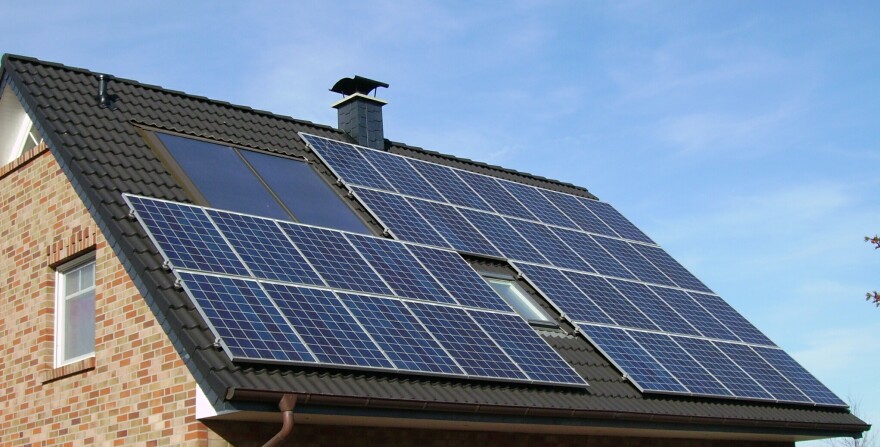Solar roof customers are more than paying their share of maintaining the electric grid, according to a new study commissioned for the Institute for Energy Innovation (IEI).
Michigan's new energy law charges the Michigan Public Service Commission with devising a new rate to compensate people with solar roofs when their extra electricity goes onto the grid.
Right now, these customers get an equal credit from the utility. That credit includes the charge for maintaining the utilities' infrastructure like poles and lines. Utilities say the full credit means these customers are not paying their share of electricity infrastructure.
But Dan Scripps, President of IEI, says actually, they are, and then some. That's because electricity from rooftop solar typically goes on the grid at times of peak demand and peak cost, especially during the summer on hot, sunny days. So the excess electricity produced by solar roof customers is worth more than the credit they get on their bills.
"It's at or near those peak times when the energy that the utility has to go out and get for you is the most expensive to purchase," says Scripps.
Scripps says the current scheme of credits is fair enough, and it also has the benefit of being simple for both the utility and the customer. But he says if the commission decides to alter the credit, rooftop solar customers should get more, not less, for the electricity they put on the grid.




